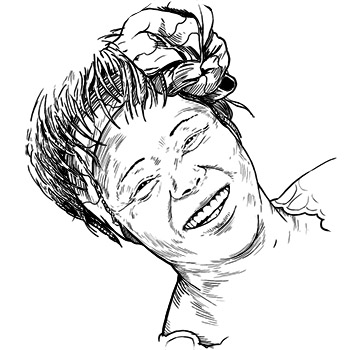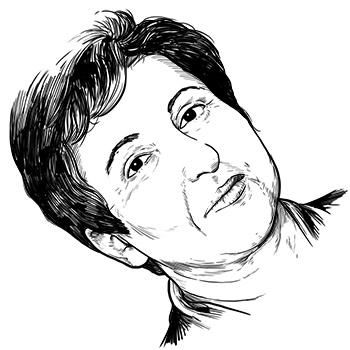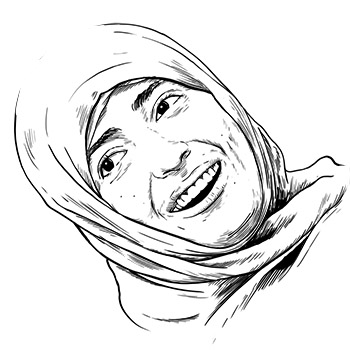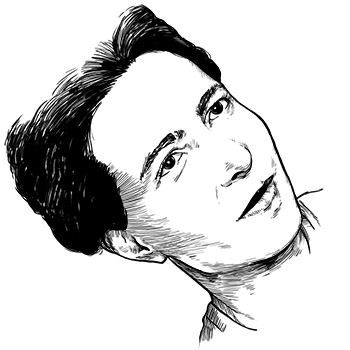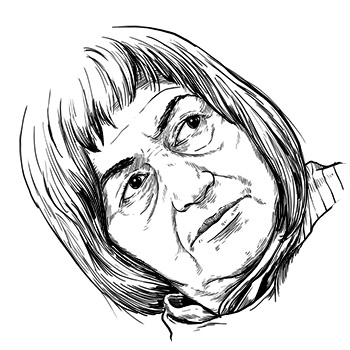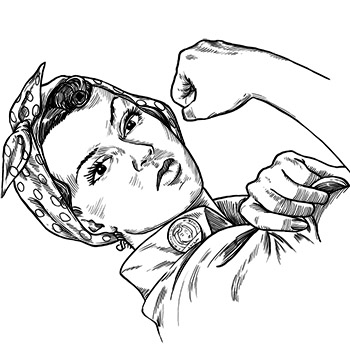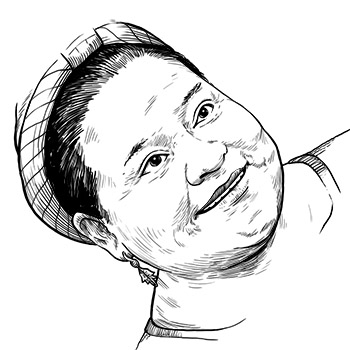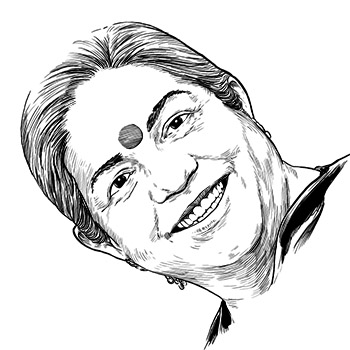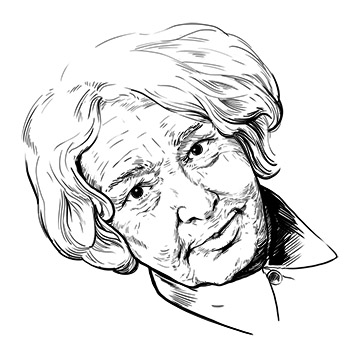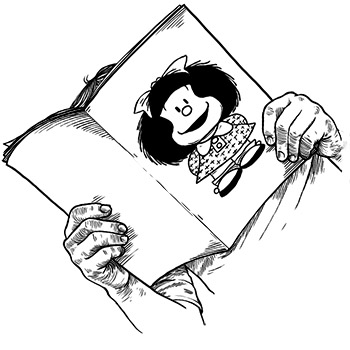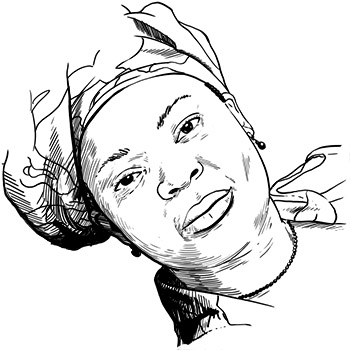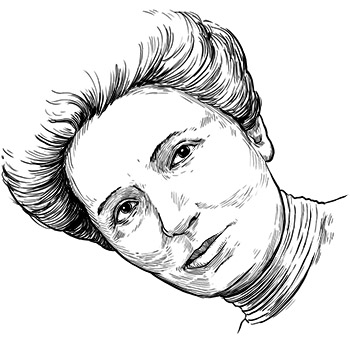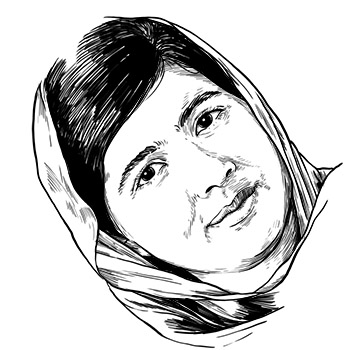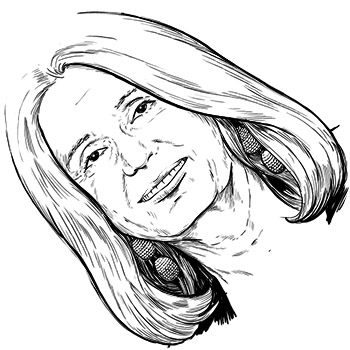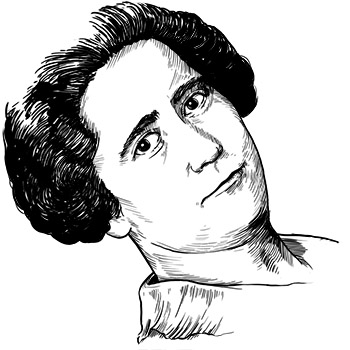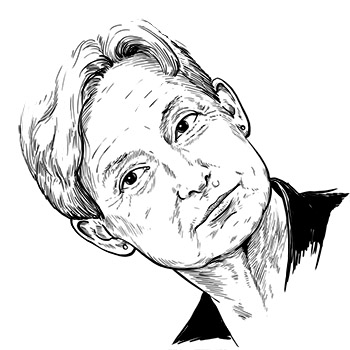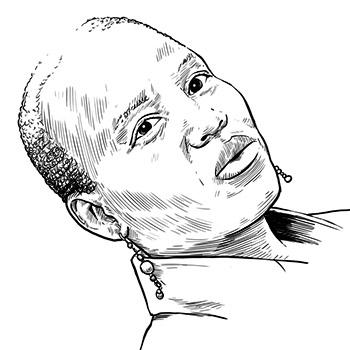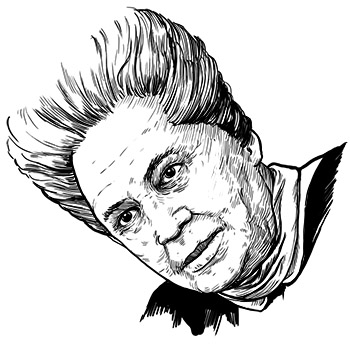Standing on the shoulders of giants.
We are proud to present 20
incredible women’s rights activists.
Take the test and find
your personal match.
Unity Dow
Unity Dow was the first female High Court judge in Botswana. She was a plaintiff in a historic case that allowed children of Botswanan women and foreign men to be considered Botswanan. Unity was also one of three judges who decided on the internationally known Kgalandi court decision, concerning the rights of the San people of Botswana to return to their ancestral lands.
Vandana Shiva
Vandana Shiva is an Indian environmental activist and author. In the 70s, she spoke against the ‘Green Revolution’, which aimed to alleviate hunger by improving crop performance with irrigation, fertilizers, pesticides, and mechanization. Aiming to green the world, she opposes globalization and the use of genetically modified crops. Vandana advocates for women’s active participation in agriculture.
Wangari Muta Maathai
Wangari Muta Maathai is the founder of the Green Belt Movement, an indigenous grass-roots organization that focuses on planting trees to replenish the environment and improve the quality of life for women. Maathai was the first African woman to receive the Nobel Peace Prize. The prize was awarded for her contribution to sustainable development, democracy and peace.
Shirin Ebadi
Shirin Ebadi is a former judge and human rights activist, and is also the founder of the Defenders of Human Rights Center in Iran, which focuses on the rights of women, children and refugees. She is the first Iranian in history to win the Nobel Peace Prize in 2003.
Tawakkol Karman
Tawakkol Karman is a journalist, politician and human rights activist. She won the Nobel Peace Prize for her non-violent struggle for the safety of women and their rights to full participation in peacebuilding work. She founded and still leads the group Women Journalists Without Chains to promote freedom of opinion and expression, and democratic rights.
Simone de Beauvoir
Simone De Beauvoir was a French existentialist philosopher, an intellectual, political activist and a feminist writer. Her most famous novels are She Came to Stay, The Mandarins and The Second Sex. Simone was a significant figure of the 20th century feminist movement.
Stasa Zajovic
Staša Zajović is a peace and human rights activist from Serbia. She is the founder of Women in Black, and was nominated for the Nobel Peace Prize and the Right Livelihood Award. She was actively involved in the first feminist movements in former Yugoslavia.
Rosie the Riveter
Rosie the Riveter is the cultural icon of the U.S., representing the American women who worked in factories during World War II, commonly used as a symbol of feminism and women's economic power.
Rigoberta Menchú
Rigoberta Menchú is an activist and spokesperson of indigenous peoples rights and equality. She won the Nobel Peace Prize in 1992 for her work on behalf of the indigenous groups of Guatemala, her native country. In 2006, Rigoberta was one of the founders of the Nobel Women's Initiative, which aims to strengthen work being done in support of women's rights around the world. Her courageous work has made her a leading voice for the rights of indigenous and oppressed people worldwide.
Nelson Mandela
...
Nawal El Saadawi
Nawal El Saadawi is a leading Egyptian feminist, writer, activist, doctor and psychiatrist. She is the founder and president of the Arab Women's Solidarity Association and co-founder of the Arab Association for Human Rights. She has spent her life advocating for the rights of women.
Mafalda
Mafalda is a 6-year-old Argentinean comic strip character, created by Joaquin Lavado, who reflects the Argentinean middle class and progressive youth. This comic strip took Argentina and the rest of the world by storm when first published in 1964, following years of military dictatorship. Seen as something of a child prodigy, Mafalda was deeply concerned for humanity, equality and world peace. The cartoon strip, which has been translated to more than 30 languages, celebrated its 50th anniversary last year.
Leymah Gbowee
Leymah Gbowee is a Liberian peace activist responsible for leading a women’s peace movement that helped bring an end to the Liberian civil war in 2013. She received the Nobel Peace Prize in 2011 for her non-violent struggle towards peace and security for women and girls throughout Africa.
Kate Sheppard
Kate Sheppard is a suffragette in New Zealand who was very influential in winning voting rights for women in 1893, making New Zealand the first country in the world to grant women the right to vote. She supported a number of women's rights issues, from the advantages of contraception and the right to divorce, to the guardianship of children and the abolishment of corsets.
Malala Yousafzai
Malala Yousafzai is a Pakistani student activist known for her work to increase children’s right to education. She was shot and wounded by the Taliban in 2012 for defying a ban on girls’ attendance in school. In 2014, she received the Nobel Peace Prize for her struggle against the suppression of young people’s voices and for the right of all children to get an education.
Gloria Steinem
Gloria Steinem is an American journalist and feminist who became nationally recognized as a leader of the women's liberation movement in the late 60s and 70s. Her article ‘After Black Power, Women’s Liberation’, published in 1969, brought her recognition in the United States as a feminist leader. Gloria is an active writer, lecturer, editor and feminist advocate, continuing her fight for equality.
Clara Campoamor
Clara Campoamar was a Spanish politician and feminist best known for her advocacy for women's rights and suffrage during the writing of the Spanish constitution of 1931.After attending law school, she became active politically and went on to form the International Federation of Women Lawyers. Clara stood for election as a member of the 1931 Constituent Assembly to which she and two other women were elected despite the fact that Spanish women could not vote at the time.
Judith Butler
Judith Butler is an American philosopher and gender theorist, who has influenced political philosophy, ethics and the fields of feminist queer and literary theory. Her work has significantly broadened the cultural configurations of gender and fundamentally shaped the feminist discourse.
Ayaan Hirsi Ali
Ayaan Hirsi Ali is a Somali-born American (formerly Dutch) feminist, atheist activist, writer and politician. She is known for her critical views of female genitale mutilation and Islam, and supportive of women's rights and atheism. She wrote the screenplay for “Submission,” the 2004 documentary about women in Islam that led to the murder of its director, Theo van Gogh, by a Muslim extremist. Death threats were made against Ali too. She is the founder of The AHA Foundation which focuses to help protect and defend the rights of women in the US from religiously and culturally instigated oppression.
Anna Filosofova
Anna Pavlovna Filosofova is a Russian philanthropist and feminist who opened the first Russian women's university and became the chairperson of the International Council of Women in 1899. She participated in the Russian Revolution of 1905 and became the chairperson of the first Russian Women's Congress in 1908.
